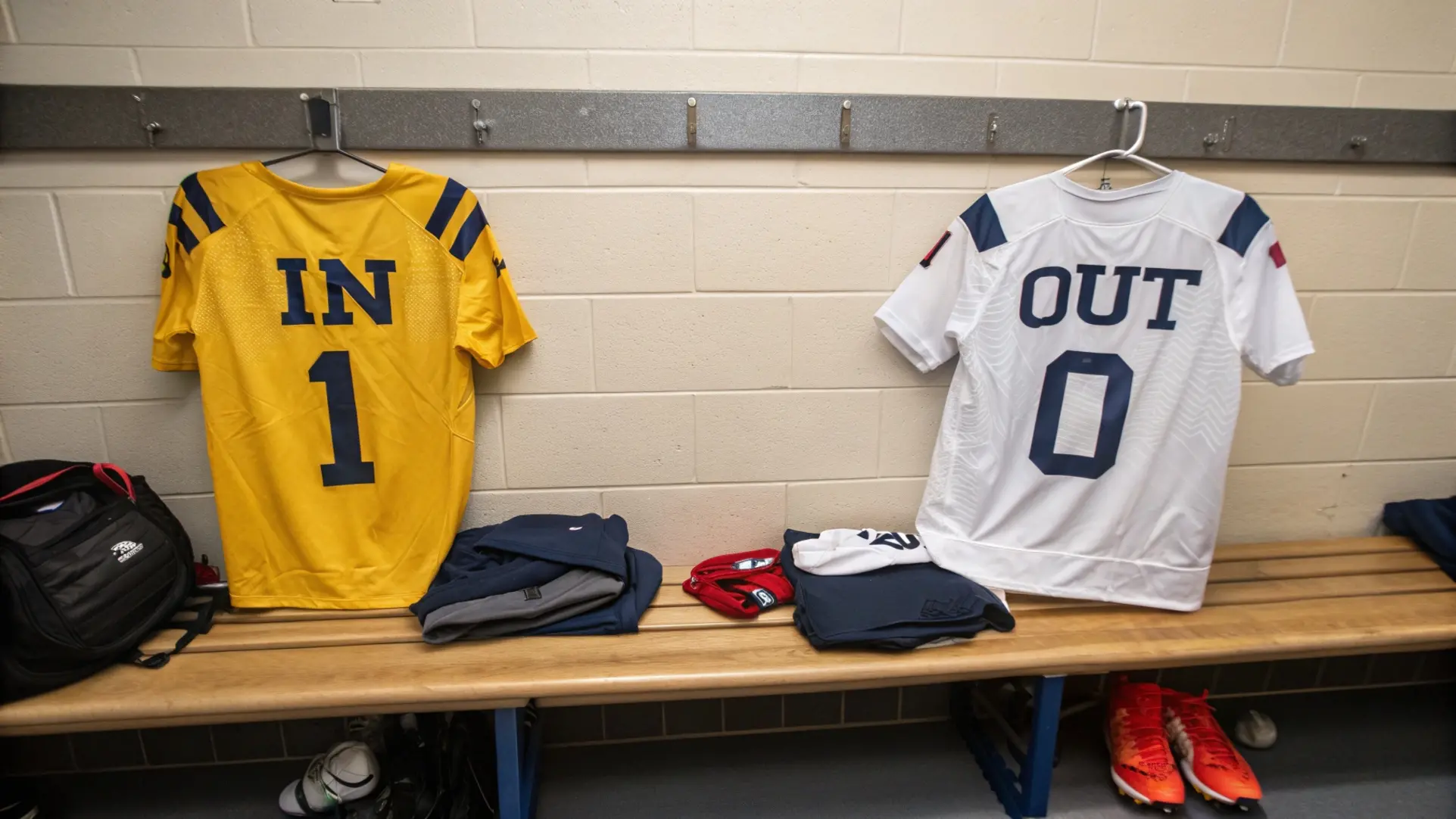- Published on:
- March 27, 2025
- Author:
- Ravi Patel & John Turner
In fantasy football, one of the most important aspects of managing your team is making the right transfer decisions. Whether you are trying to strengthen your squad or offload underperforming players, the art of buying and selling players in fantasy football is essential to securing a competitive edge in your fantasy league.
Transfers play a huge role in the overall success of your fantasy football season. Understanding when to buy, when to sell, and which players to target can determine whether your team climbs the ranks or struggles to stay competitive. In this article, we will walk you through some of the best strategies for making successful fantasy football transfers to improve your squad's chances of winning big in your fantasy league.
1. Assessing Player Form and Fixtures
The first step in making smart transfers is understanding player form. A player’s recent performances are often a strong indicator of how they’ll perform in the upcoming games. Always keep an eye on players who have been consistently scoring points, as these are the ones likely to continue delivering solid performances.
Additionally, analyzing the upcoming fixtures is equally important. A player with a favorable schedule is more likely to rack up points, especially if they are facing weaker opposition or playing at home. It’s crucial to target players whose next few matches are winnable and in their favor.
- Fantasy Tip: Target players with easy fixtures ahead. A player’s performance against strong teams may not be as consistent as someone facing mid-table clubs.
- Fantasy Tip: Always check player form over the last 5-10 games to determine consistency rather than relying on one or two strong performances.
2. Identifying Rising Stars and Underperforming Players
One of the best strategies in fantasy football transfers is identifying under-the-radar players who are on the rise. These rising stars may not have huge price tags yet, but they can quickly become valuable assets in your fantasy team. Pay attention to players who are getting more playing time, especially if injuries or suspensions have opened up opportunities for them.
On the flip side, underperforming players—especially those who have been consistently disappointing—are likely to drain your points rather than contribute positively. Selling off these players can free up space and budget to make more strategic acquisitions.
- Fantasy Tip: Keep an eye on player rotation and injuries. Players stepping into starting roles can deliver excellent value in fantasy.
- Fantasy Tip: Don't hesitate to sell underperforming stars, even if they have been big names in the past. A player who hasn’t delivered in recent weeks is unlikely to do so in the coming games.
3. The Importance of Position and Role
When it comes to fantasy football, the position and role of a player within their team can make all the difference. A striker or winger who scores goals consistently will almost always be a better pick than a central midfielder who doesn’t contribute directly to the attack.
Similarly, defenders who regularly earn clean sheet points or contribute with goals and assists should be prioritized. And don’t forget the goalkeepers—those who regularly keep clean sheets and make plenty of saves are valuable assets for fantasy football teams.
- Fantasy Tip: Always assess the role of a player in their team. A defensive midfielder may not earn as many points as an attacking midfielder, even though their performances might be vital to real-life matches.
- Fantasy Tip: Invest in players who are in goal-scoring positions or who contribute significantly to their team's attacking play.
4. Targeting Formational Players
Players who are part of high-scoring teams or strong formations should be prioritized when considering fantasy football transfers. For instance, players from clubs with an attacking mindset, such as teams that dominate possession and create numerous scoring opportunities, are likely to rack up more points.
For example, if a team is known for playing a 4-3-3 formation, players in forward positions or attacking midfield roles are more likely to score and assist goals. Similarly, defenders in teams that play high-pressing football and allow few goals are valuable for clean sheet points.
- Fantasy Tip: Choose players who are involved in their team’s attacking play, as they have more chances to earn points through goals, assists, and overall contributions.
- Fantasy Tip: Prioritize defenders from teams with a strong defensive record, as they provide consistent clean sheet points.
5. Understanding Player Rotation and Injuries
Player rotation is a common factor that can affect fantasy football decisions. Managers rotate players based on fitness levels, tactics, or match schedules. A player who gets rotated regularly is less likely to deliver points consistently, making them a risky fantasy pick.
Similarly, injuries can have a massive impact on fantasy football. Always keep an eye on injury reports and fitness updates to avoid selecting players who are not fully fit. A player returning from injury can sometimes provide excellent value, but it’s important to be cautious about overvaluing them too early.

- Fantasy Tip: Always check if a player is expected to start or be rotated before making a transfer.
- Fantasy Tip: Follow injury updates regularly to avoid wasting transfers on players who won’t play.
6. Balancing Budget and Team Structure
Balancing your fantasy football budget is one of the key challenges of managing your team. While it’s tempting to fill your team with stars and expensive players, it’s important to find value in the mid-range players who can provide solid returns without breaking the bank.
A successful fantasy football manager knows how to spread the budget efficiently across all positions. Make sure to keep a balanced squad with strong options across the board, including substitutes who can step in when necessary.
- Fantasy Tip: Don’t overspend on a single player. Build a team with balanced investments across all positions.
- Fantasy Tip: Invest in bench players who are likely to play regularly, even if they are not the most expensive choices.
Conclusion: Smart Transfers for Fantasy Football Success
Making the right transfers in fantasy football is crucial to building a successful team. By focusing on player form, analyzing fixtures, targeting rising stars, and understanding player roles, you can make informed decisions that will improve your fantasy squad.
Fantasy football requires a combination of patience, research, and strategy. Always be proactive in making transfers and don’t hesitate to adjust your squad based on the latest trends, injuries, and fixture schedules. By following these transfer tips, you’ll be better positioned to succeed in your fantasy football league and secure a top spot by the end of the season.

